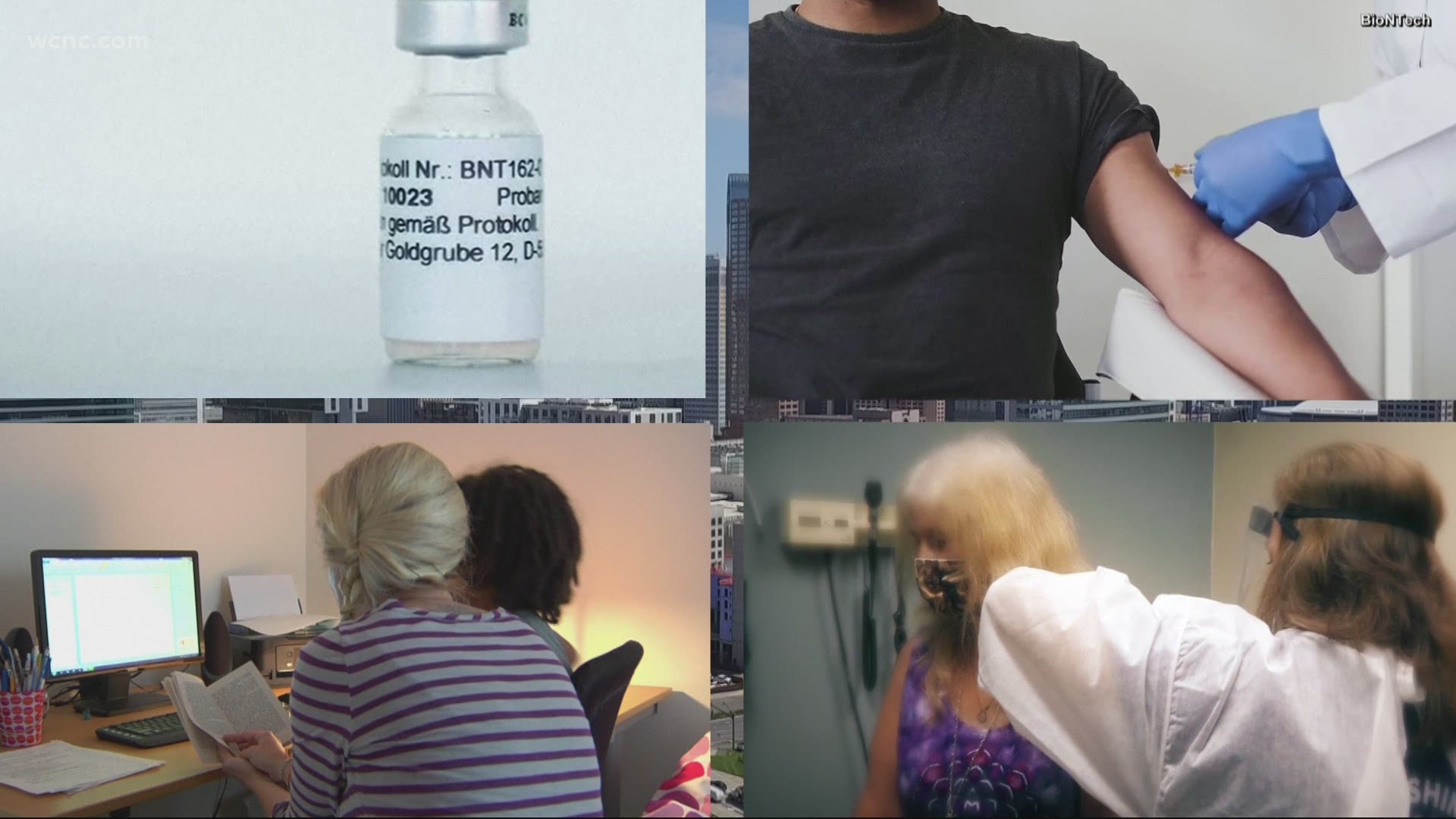CHARLOTTE, N.C. — Wednesday, the United Kingdom became the first country to approve the distribution of two COVID-19 vaccines. Officials say they plan to begin giving them out as soon as next week.
Here in the U.S., approval from the FDA is expected to come this month. North Carolina Gov. Roy Cooper said once approved, he's secured 84,800 vials of Pfizer's coronavirus vaccine, which he and state health secretary Dr. Mandy Cohen expect may arrive by Dec. 18.
"We have refrigeration units that can store, on day one, up to 300,000 units," said Gene Woods, Atrium Health CEO, during an interview on CNBC.
So, who gets the vaccine first?
Gov. Cooper said the first doses will go to health care workers on the front lines.
"I would anticipate by the end of the month that we are immunizing people in the Charlotte area," said Dr. Lewis McCurdy, specialty director of infectious diseases at Atrium Health.
By January, state officials say they hope to begin vaccinating those who are high risk and have the highest chance of severe illness, including those in assisted living facilities. Then by this summer, doctors are hopeful the vaccine will be available to the general public.
How much will they cost?
"The COVID-19 vaccine will be free," said Gov. Cooper.
With vaccines soon available, infectious disease doctors say their biggest challenge now is educating the public that they are safe, saying they will only be effective if a large part of the population, or roughly 200 million people, participate.
"I think people have the sense of, 'well they just pulled this out of their hats 6 months ago and they ran it through some people and now they're rushing it through.' This idea of MRNA vaccines has been around for a number of years, it's very exciting technology," said Dr. David Priest, an infectious disease specialist at Novant Health.
Doctors say the vaccine will require two doses and similar to the flu vaccine will likely be needed every year. Also like the flu vaccine, doctors say there's a misconception or fear, that the vaccine could give someone the virus, which they say is not true.
"It's essentially a protein that's in your body that your immune system is responding to, you cannot, no way, get the virus from the vaccines that are coming out," said Dr. Katie Passaretti, infectious disease specialist at Atrium Health.
"It allows your own body to make the proteins necessary for your immune system to fight coronavirus," said Dr. Priest, echoing Dr. Passaretti.
"When it's my turn to get this vaccine, I will be ready to roll up my sleeve," Governor Cooper said, during a press conference held Tuesday, saying the vaccine could help save lives.
"Just take the flu vaccine data right, the most recent data by the CDC showed it prevented 4.4 million flu illnesses," said Woods, "So what is that? That resulted in 2.3 million less physician visits and also 60-thousand less hospitalization visits."

